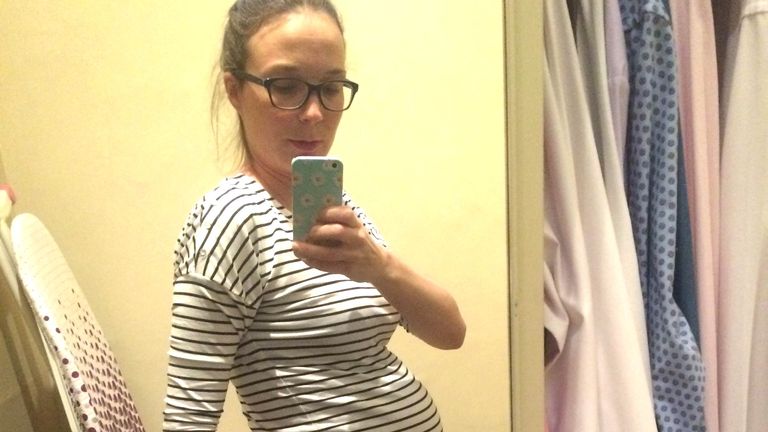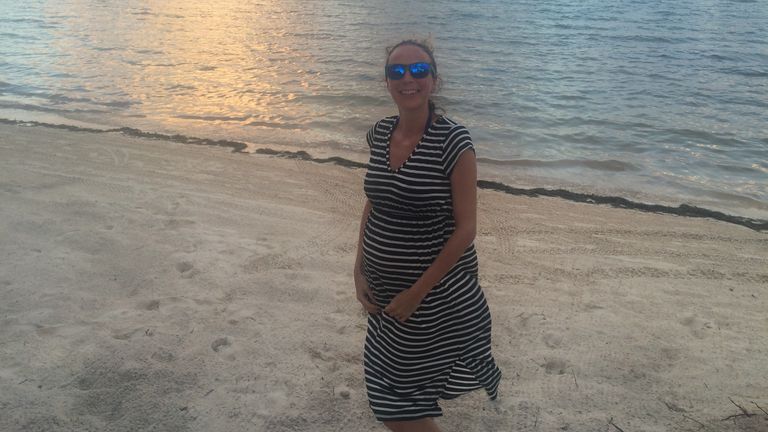Parents ‘angry’ no one held accountable for stillborn baby’s care – amid fears NHS’s ‘religion’ status is ‘dangerous’


The parents of a baby stillborn due to hospital failings have spoken of their grief amid warnings the public’s view of the NHS as a “national religion” could be “dangerous”.
Warning: This article contains details some readers may find distressing
Eight years ago, Harriet Hawkins was born dead. Every single day without her is unbearable for Jack and his wife Sarah.
And it’s made worse knowing Harriet’s death was preventable. Another baby death. Another maternity scandal.
“Harriet is my daughter,” Jack says, his voice breaking with emotion.
“She’d be eight-and-a-half. I miss her and the idea of her every moment of every day.
“A child dying when they should be alive and would have been alive if we’d been in hospital on the Friday instead of the Saturday. It makes no sense.”
On Sunday, the parliamentary and health service ombudsman Rebecca Hilsenrath suggested that clapping for the NHS during the coronavirus pandemic could have been “dangerous”.
She said that “no organisation should be beyond constructive criticism” and that it isn’t “helpful for any organisation to be treated as religion”.
Jack says he and Sarah have had to “do the regulator’s work for them” in their pursuit of justice over their daughter’s death in NHS care.
A 2021 report found there were 13 failings in Sarah’s care.
Harriet was stillborn at 41 weeks – six days after her mother went into labour and nine hours after she was declared dead.
The failings included failing to diagnose Sarah’s labour and confusing Harriet’s heartbeat with her mother’s.
At the time, Jack and Sarah both worked at Nottingham City Hospital where she gave birth.
“I remain angry that we have been so horrendously failed, after the care of our daughter that fails to deliver her alive, we have had to fight,” Jack says.
“And eight-and-a-half years on, not a single person involved in Harriet’s care, not a single person held accountable.”

Hundreds of baby deaths being reviewed
Harriet’s death is one of hundreds being examined in a review of Nottingham University Hospitals (NUH).
It is the UK’s largest-ever maternity review and follows similar scandals in East Kent and Shrewsbury.
In March 2022, midwife Donna Ockendon’s report found that 201 baby deaths could have been avoided at the Shrewsbury and Telford NHS Trust.
A further 45 could have been avoided across East Kent Hospitals University NHS Foundation Trust, a report found in October that year.

Read more:
Grieving parents demand national guidelines
Four baby deaths and their families’ fight for justice
Mother who died after childbirth could’ve been saved
Jack and other bereaved families in Nottingham fear that the current report’s findings will not bring the necessary change in the NHS to stop avoidable baby deaths.
He adds: “I think this one will go further. I think this one will explain in more detail the failures of what we call governance.
“‘What went wrong? How did it go wrong?’ But my big question is then, ‘So what?’, which is not to make any comment about the quality of the review, but will the midwives running the home birthing service in another part of the country actually read it and say, ‘crikey, we might be doing something wrong?’
“That’s why I am confident it will be a great review, but not so confident that will impact maternity failings.”
Recommendations repeatedly not implemented
NHS ombudsman Ms Hilsenrath shares these concerns.
She tells Sky News: “What we find is that when these big inquiries are held, the recommendations are the same as the one before and the one before that.
“And when there is a big failing and a tragedy, what we hear is never again. But what we don’t see is implementation of the recommendations.
“If you look at Shrewsbury, if you look at East Kent… you will see a recommendation of better listening to patients, better compliance with basic guidance, better communication between different professional teams, better aftercare, better mental health support.
“But we need to look at those recommendations and not then go on to do the easy thing, which is to hold another inquiry.”
Ms Hilsenrath will be providing evidence to Lord Darzi, who has been tasked by the government to produce the most comprehensive report into the failings of the NHS. It is due to be published next month.

Fears of more deaths before next report
Jack is worried about any possible delays in converting the report’s findings into action.
“In the time that it’ll take the Darzi report to publish, there will be hundreds of avoidable baby deaths in this country,” he says.
Nothing will ever stop the pain of losing Harriet. But making sure no other parent will have to go through the same grief might ease Jack and Sarah’s burden.
In 2017, Tracy Taylor, then chief executive of Nottingham University Hospital NHS Trust, offered her sympathies to Jack and Sarah following Harriet’s death.
“I offer my deepest sympathy to Sarah and Jack for the pain and distress the death of their daughter, Harriet, continues to cause them and their family,” she said in a statement at the time.
“I profoundly apologise that we let them and Harriet down so badly. NUH has acknowledged that it is likely Harriet would have survived had it not been for several shortcomings in care.”
The NUH’s current chief executive Anthony May said in a statement: “I know we have failed too many women and their families, and I acknowledge the pain and suffering they continue to experience as a result. For that, I am truly sorry.
“I recognise the strength it takes to share experiences in the way that families have, and I am grateful to all those who have engaged with me since I joined NUH in 2022.
“I am clear that we must listen to women and families and act on their feedback if we are to continue our improvement and rebuild the trust in our services.”